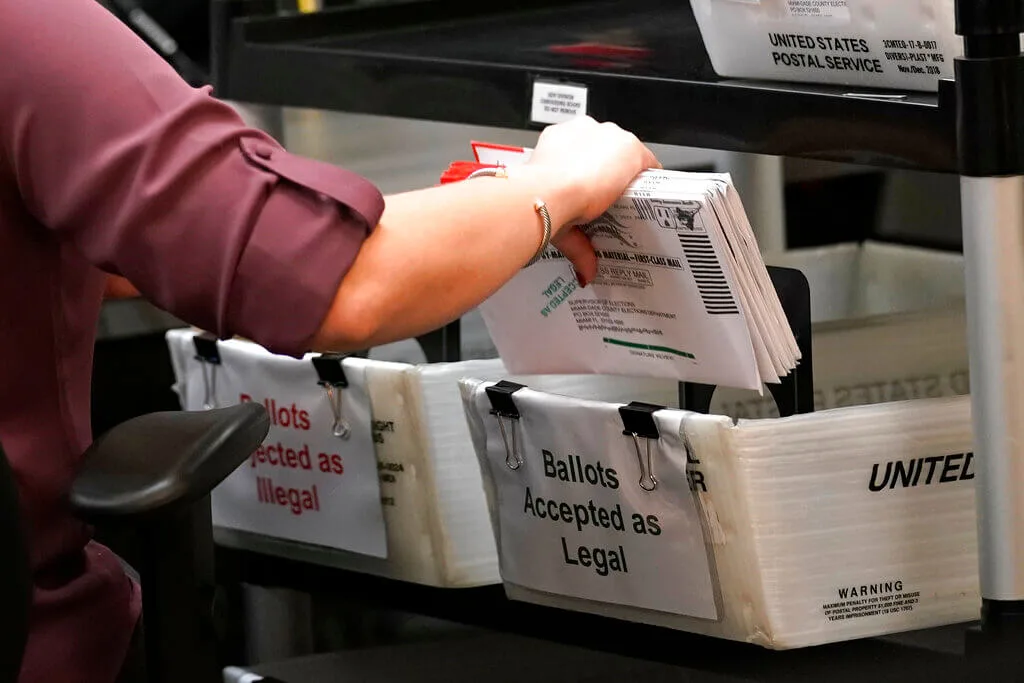
Image via Shutterstock
“To be racialized or to identify as Latino according to official, cultural, or other definitions is not identical to ‘thinking’ Latino in political terms.” For Latinos, to vote or not to vote is no longer the question.
Latinos. We are so often misunderstood. While Latinx voters were reaching new turnout highs during the 2018 midterms, the most recent national election on record, The Economist was blaring out this headline: “Why don’t Latinos Vote.”
The thing is we do vote. As The Economist admits in its article, little over 57% of all Latinos are registered to vote and 47% of them actually do. That percentage lags African Americans by only 10% and White Americans by 18%. I say “only” because 10% and 18% behind people who’ve been here for generations, is not bad at all. (For comparison, there was equal Asian and Latino turnout in both 2014 and 2018.)
News flash: it takes a bit of time to situate yourself in the new country, learn the language, become eligible to vote. Immigrants spend years submerged in survival: finding a job, moving out of the couch of whomever helped them when they first arrived, helping their kids to learn English in new schools while learning it themselves.
There’s also the time it takes for the political, social and economic battles you’ve carried with you all your life to recede from your day to day (and from your heart), and for the ones of your new country to take hold.
RELATED: Why Non-Registered Latinos Are Taking the Necessary Steps to Vote in 2020
In a year of unthinkable fear and death, not to mention sudden economic turmoil, that lag may not be the thing we need to worry about the most. Think about it. If most sane people are mad as hell at this administration, what can be said of Latinos after three years of systemic damage to the legal immigration system by this administration’s policies, the starkest of the consequences the thousands of children still in cages in this country? Hell yes, Latinos will be voting in high numbers this year if the just concluded primaries are any indication.
The bigger problem might be how we are voting. In 2016, even after Trump branded Latinos as rapists and “not the best people,” 29% of them voted for him. (Yes, he said Mexicans. But we know he meant Latinos.) According to Politico, if even 12% more Latinos than voted for him last time, support him this year, Trump would win the 2020 election even if all his other numbers stay the same.
I can’t for the life of me understand so many Latinos voting against their own interests, so I call Frances Negrón-Muntaner, the scholar and Columbia professor who’s also founding curator of the Latino Arts and Activism Archive at Columbia’s Rare Books & Manuscripts Library.
She tells me she can see how some Latinos might vote for Trump in the coming elections, as might members of other groups who have been disparaged or targeted by his administration such as women, Muslims, and Asian Americans.
“It’s complex. While US policies, media, and other relations of power define Latinos as a racialized ethnicity with specific political challenges, these forces are not the only factors in shaping the identities and aspirations of Latinos. This is the case for many reasons.”
She gives me three important ones and the logic is irrefutable: The reason we came and the city in which we now live shapes our voting; so does our racial, social, political and religious differences. How we process our individual experience fragments us. We don’t vote the same because we don’t think the same about the same things.
“Latinos not only come from very different contexts, their histories of settlement or migration to the United States also vary greatly. Apart from living in diverse settings, some have roots in the territory even before there was a country called the United States; others fled authoritarian regimes as exiles or refugees, and yet others are colonial migrants who are US citizens by birth. Latinos are likewise not only viewed or identify as Latinos; they are also racialized or identify as black, indigenous, Asian, Arab, European. Moreover, Latinos do not occupy the same class positions, share the same religious affiliations or hold the same gender politics. In addition, a number of Latinos may see themselves through other lenses, as Americans, US citizens (“legal”), evangelical, conservative. Not unlike other groups, Latinos make sense of their experiences through a range of frameworks, which are in turn constantly shifting. As a result, Latinos do not always constitute a ‘solid’ voting block, although in certain circumstances, they do.”
In other words, she says, “To ‘be’ racialized or to identify as Latino according to official, cultural, or other definitions is not identical to ‘thinking’ Latino in political terms, that is, to actively contest the process by which Latinos as a group are racialized, marginalized, and dispossessed as a non-white foreign other in the United States.”
Hot Damn. I decided right then that, yes, we all have to work to get the vote out, but that when it comes to Latinos, we may also have to make sure two facts are upfront and center, ready for when Trump tries to use all that “what the hell do you have to lose” bullshit on us:
- Family separation policy implemented to harrowing extremes with the full effects to be with us for years.
- Trump has single-handedly made life harder for Latinos with his rhetoric. If discrimination was a problem before, it has become a bigger one since the president has made it acceptable for many to be downright racist, violent, and abusive.
So, yes, let’s get out the vote. But let’s also remind our people of the reasons we can’t vote for Trump: our families, our communities, and even our lives may depend on it.
RELATED: Latinos Are Here to Stay. Luckily, Our News Knows No Borders
Politics

Teamsters and UPS Reach Tentative Deal to Avoid Strike, 340,000 Workers to Get Raises
The tentative deal represents a huge win for full- and part-time UPS Teamster workers, who would get significant pay raises and better working...



One Republican Senator Is Blocking 265 Military Promotions, Leaving the Marines Without a Confirmed Leader
Sen. Tommy Tuberville's decision means these military officers are not getting the pay raises they’re owed, cannot move their families to wherever...
Local News



Teamsters and UPS Reach Tentative Deal to Avoid Strike, 340,000 Workers to Get Raises
The tentative deal represents a huge win for full- and part-time UPS Teamster workers, who would get significant pay raises and better working...



One Republican Senator Is Blocking 265 Military Promotions, Leaving the Marines Without a Confirmed Leader
Sen. Tommy Tuberville's decision means these military officers are not getting the pay raises they’re owed, cannot move their families to wherever...




